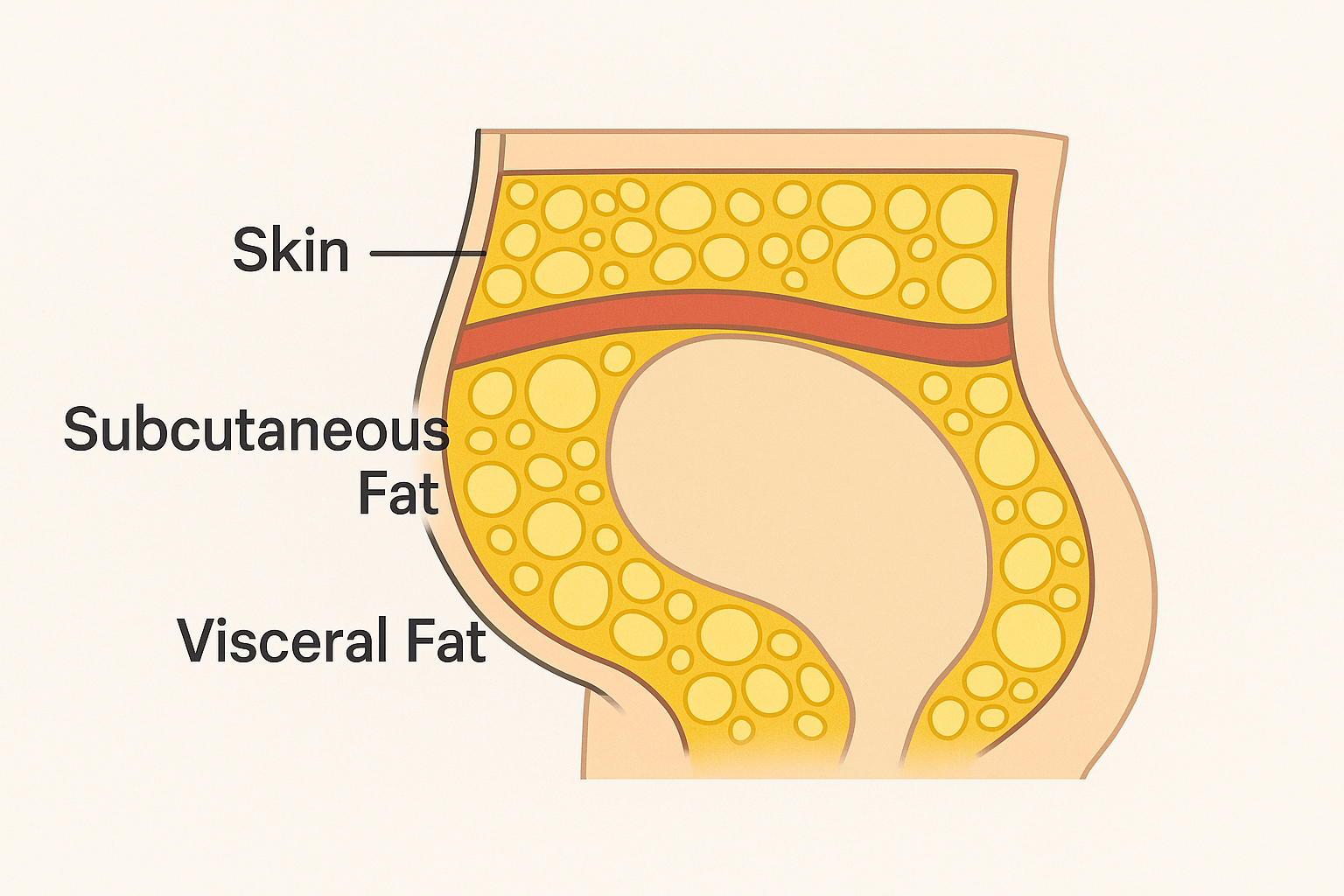Why Most Diets Fail: Common Pittfalls Explained
Many people who begin a weight-loss journey struggle to maintain their results long-term — and as a nutritionist in London, I see countless clients who’ve tried multiple diets only to regain the weight, often more than before. This repeated cycle can feel deeply frustrating and discouraging. But why do most diets fail, and what is the missing piece for sustainable, long-term fat loss? In this article, we’ll explore the key factors that make weight maintenance so challenging and what actually works when it comes to achieving results that last.
In this article, I will explore the common pitfalls of popular diets, backed by scientific evidence, and explain how a holistic, personalised approach can lead to lasting success. Understanding these concepts will empower you to make better choices and finally break free from diet frustration.
Understanding Why Diets Often Fail
The reality is harsh: around 80% to 95% of people who lose weight on diets regain it within 1 to 5 years, according to numerous studies (1). Why is this the case?
1. Diets Often Focus on Restriction Over Sustainability
Many diets, especially fad diets, focus on calorie restriction or cutting out entire food groups. This approach can lead to rapid weight loss initially, but it is rarely sustainable. The human body responds to caloric deficits by slowing metabolism, increasing hunger hormones, and reducing energy expenditure — a biological defense mechanism to prevent starvation (2).
2. Psychological and Emotional Factors Are Ignored
Diets frequently overlook the emotional relationship people have with food. Stress, boredom, and emotional triggers often lead to overeating or binge eating, which can sabotage weight loss attempts. Without addressing these root causes, relapse is almost inevitable.
3. Lack of Personalisation
No two bodies are the same. Genetic makeup, lifestyle, gut microbiome, and metabolic health all influence how someone responds to a diet. A one-size-fits-all diet rarely fits well with individual needs, causing frustration and failure.
4. Unrealistic Expectations and Short-Term Mindset
Many diets promise quick fixes, which encourage an unsustainable approach. When weight loss slows down or plateaus, motivation wanes. Without adopting long-term behavioural changes, weight regain is common.
The Missing Piece: A Holistic, Sustainable Approach to Weight Loss
To achieve sustainable weight loss, it’s essential to move beyond restrictive dieting and embrace a comprehensive approach that considers nutrition, behaviour, and lifestyle factors.
1. Evidence-Based Nutrition Guidance
Personalised plans, tailored to your unique needs, can address issues such as hormonal imbalances, nutrient deficiencies, or food sensitivities that might affect weight management.
2. Behavioural and Psychological Support
Changing how you think about food is crucial. Mindful eating, cognitive behavioural strategies, and stress management techniques can help you build a healthier relationship with food. Addressing emotional eating and learning sustainable habits prevent the yo-yo dieting cycle.
3. Focus on Metabolic Health and Lifestyle Factors
Metabolism is influenced by sleep quality, physical activity, stress, and gut health. Optimising these areas alongside nutrition enhances fat loss and overall wellbeing. For example:
- Improving sleep hygiene reduces cravings and balances hunger hormones.
- Regular physical activity preserves muscle mass and boosts metabolism.
- Managing stress lowers cortisol levels that can lead to fat storage.
4. Realistic Goal Setting and Patience
Sustainable weight loss is gradual. Aiming for 0.5–1 kg per week is realistic and safe. Embracing progress over perfection and celebrating small wins builds confidence and resilience.
How Professional Support Can Help You Succeed
In clinical practice, I see first-hand the transformational effect of combining personalised nutritional advice with behavioural coaching. Here’s how professional guidance makes a difference:
Personalised Assessment
We evaluate your medical history, current diet, lifestyle habits, and psychological factors to build a complete picture. This enables tailored recommendations rather than generic advice.
Customized Nutrition Plan
Your plan considers your preferences, intolerances, and nutritional requirements. Unlike restrictive diets, it focuses on nutrient-dense foods to nourish your body and keep you satisfied.
Long-Term Support
Regular follow-ups help track progress, adjust your plan as needed, and provide motivation. This accountability fosters sustainable habits rather than short-term fixes.
Integration of Lifestyle and Behavioural Changes
Alongside diet, we address sleep, stress, and exercise habits, empowering you to make holistic improvements that support weight management.
Common Myths About Dieting Debunked
- Myth: Cutting carbs is the only way to lose weight.
Fact: Balanced diets including all macronutrients, tailored to individual needs, are more sustainable and healthier long-term (3). - Myth: Supplements can replace healthy eating.
Fact: Supplements support but do not replace balanced nutrition and lifestyle changes. - Myth: You must feel hungry to lose weight.
Fact: Hunger signals the body needs fuel; sustainable diets prioritise satiety to avoid overeating.
Practical Tips for Sustainable Weight Loss
- Eat whole, minimally processed foods: Focus on vegetables, lean proteins, whole grains, and healthy fats.
- Listen to your body: Eat when hungry, stop when satisfied.
- Incorporate regular movement: Find activities you enjoy to stay consistent.
- Manage stress: Practice mindfulness, meditation, or relaxation techniques.
- Prioritise sleep: Aim for 7–9 hours per night.
- Seek professional guidance: Personalised support helps create a plan that fits your lifestyle.
Conclusion
The reason most diets fail is because they overlook the complexity of sustainable weight loss. Restrictive, one-size-fits-all approaches do not address individual biology, psychology, and lifestyle factors. The missing piece is a holistic, personalised strategy — one that combines evidence-based nutrition, behaviour change, and lifestyle optimisation.
In clinical practice, I have witnessed clients regain control over their health and weight by shifting their mindset and adopting sustainable habits. If you’re tired of diet disappointment, consider professional support to unlock your long-term success.
Disclaimer
This article is for informational purposes only and does not constitute medical advice. Always consult a qualified healthcare professional before making significant changes to your diet or taking supplements.
Working with a Nutritionist
Book an appointment today if you feel like you need more assistance or direction to reach your goals.
Online consultation with a Nutritionist is available for clients who live outside the London area or who are unable to come to my London office. You can enjoy the online consultation from the comfort of your home or office and you will be given the same level of personal attention and care that you would experience coming to see the Nutritionist in person.
Please note, the links provided are Amazon affiliate links. If you buy something using these links, I will receive a small commission, at no additional cost to you. Rest assured that all products recommended have been personally used and endorsed by myself.












Leave a Reply
Want to join the discussion?Feel free to contribute!